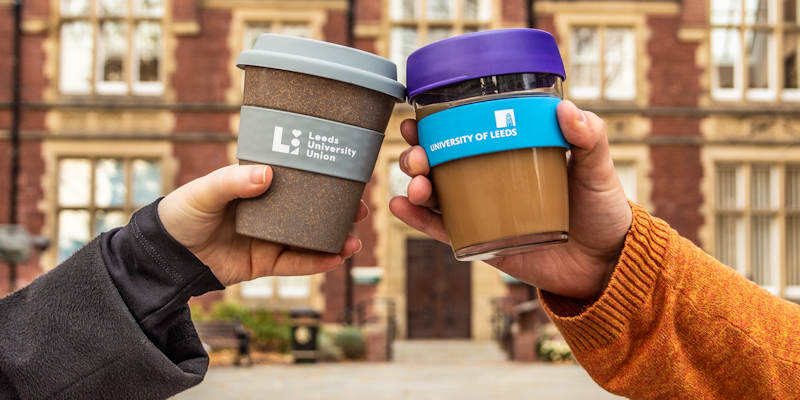The University of Leeds and Leeds University Union have pledged to stop using single-use plastics on campus by 2023, it was announced on Wednesday 7th November.
Students have responded positively to the news that their university is aiming to become single-use plastic free.
Between now and 2023, LUU and Leeds University will phase out single-use plastic across the board. This will involve working with partners and supply chains to phase out plastic packaging coming onto campus too, making our campus entirely free of single-use plastics by 2023.
Really proud to be part of this amazing University-wide pledge! 🌍 #2023PlasticFree https://t.co/LpgyIy6zZ1
— Sustainability@Leeds (@UoL_Sus) November 7, 2018
The University and Union have vowed to use biodegradable and reusable alternatives in all subject areas. For teaching in labs and other challenging areas, the University aims to launch an action plan which will develop alternatives to crucial apparatus and equipment. One example of a recent change is the School of Earth and Environment replacing its centrifuge racks with reusable equipment.
Chris Morris, Union Affairs Officer at Leeds University Union, said:
“As a Union, we are delighted to announce this joint pledge to be single-use plastic-free by 2023.
“Students have often been ahead of the national agenda, with freshers’ week plastic bag free and ensuring we have biodegradable alternatives in the Union – this pledge is another step where the University community can lead the way.
“We are looking forward to working in partnership with the University to make sure we all have a positive impact on this future-defining issue for the planet.”
The 2023PlasticFree initiative will aid the University’s research into the environmental, social and economic impacts of plastic use and advance research into sustainability that is already underway.
Examples of current research include:
- Researching processes to produce the next generation of biodegradable bioplastics, a type of plastic derived from renewable biomass that will break down quickly and safely once disposed of. The research is being led by Professor John Blacker from the School of Chemistry.
- Predicting the flow and crystallisation of polymers in plastics to improve processing and recycling, led by Professor Daniel Read, School of Mathematics.
- Increasing understanding of how after-use plastic is managed within cities to maximise circular economy potential. The research, led by Dr Costas Velis from Civil Engineering, will help identify plastic pollution sources, pathways and where to target action.
I support #2023plasticfree pledge. @UoL_Sus shouldn't we be clear that the problem is irresponsible consumption of disposable plastic products, rather than plastic in general? I've known people to be more accommodating when they're asked to promote robust and reusable products pic.twitter.com/y33uixhp1N
— Ciarán (@CMc_PhD) November 7, 2018
Professor Dame Jane Francis, prominent polar scientist and the University’s Chancellor, is also Director of the British Antarctic Survey.
She said: “The shift in public opinion about use of plastics has been phenomenal, but organisations of all shapes and sizes need to champion change.
“I think this commitment will inspire lots of people to think about how the University – as an institution that leads the way on sustainability – can make a difference.
“As a leading research university, we also have an important role in developing expertise.
“From working on alternatives to plastics and helping improve waste management, we’ll be supporting the difficult challenges ahead to ensure plastics don’t end up in the natural environment.”
Already, the University’s catering service ‘Great Food at Leeds’ has saved more than 100,000 cups by selling branded KeepCups on campus that come with a free hot drink and 20p off every purchase after that. Furthermore, Stage@Leeds have committed to replacing all of their cups and glasses with vegware or paper.
We hope you’ll join us on our journey to #2023PlasticFree. To get everyone started, we’re giving away 223 free KeepCups from today!
Claim yours by sharing this tweet with how you’re pledging to go single-use plastic-free. We'll be in touch on how to claim your cup on campus👍🏽☕️ pic.twitter.com/YnpO3Z4FhQ
— University of Leeds (@UniversityLeeds) November 7, 2018
However, some catering challenges will be harder than others. It will be interesting to see how the Union will sell drinks at Fruity, as glass poses a serious health and safety issue and current drinks containers are mostly discarded on the floor and trampled throughout the night.
Likewise, externally operated coffee chain Caffè Nero, situated in Laidlaw Library, may face difficulties complying with new regulations.
Zahra Iqbal, News Editor
Image: [University of Leeds]

